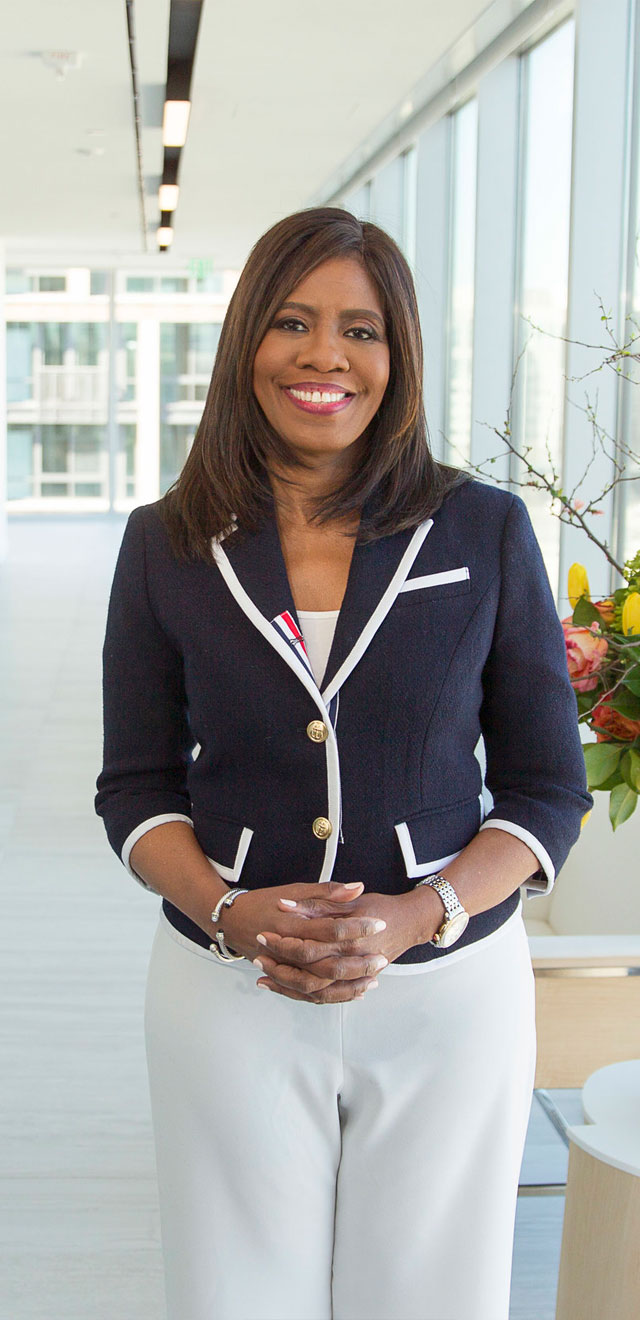Committing to Inclusion
At Health Sciences and all across West Virginia University, we're focused on fostering a more inclusive environment for students, faculty and staff that extends across the University and beyond.

At Health Sciences and all across West Virginia University, we're focused on fostering a more inclusive environment for students, faculty and staff that extends across the University and beyond.
Diversity at Health Sciences matters. When we are more diverse, we are more creative and innovative. We have more opportunities for change and growth as we encounter beliefs and values that are different from our own.
Diversity creates an environment that supports productivity through a family of people who feel a sense of belonging and appreciation. That’s what we’re trying to do here at Health Sciences — create a culture of inclusive excellence.
Through a partnership with WVU’s Division of Campus Engagement and Compliance, we have formed committees at each of the five health schools, as well as a cross-cutting committee, subcommittees for onboarding and communication, and an oversight committee, all comprised of students, staff, faculty and administrators. In all, more than 100 individuals have formally committed to cultivating a more inclusive community at Health Sciences.
Our future providers must mirror our global population. People from all different backgrounds seek care from us, and we must be able to understand their individual and cultural needs. Without an understanding of our where our patients come from, we cannot effectively provide compassionate, patient-centered care.
Across Health Sciences, we’re redoubling our commitment to curricular and experiential training in equity, inclusion and diversity to create balanced, healthy and socially conscious graduates and providers. We're also focusing our research on the social disparities suffered by our West Virginia community, including Black communities. We recognize racism is a public health crisis and we're empowering our campus to learn more and take action.
Across the Health Sciences campus, we value inclusion. We’re taking action in a number of ways to create the best experience possible for individuals from all walks of life — from admissions and hiring to coursework and campus recreation.

The Health Sciences Office of Academic Affairs is working with the Office of the Provost and the ADVANCE Center to roll out the Inclusive Hiring Initiative at the Health Sciences Center. The director of faculty affairs, culture and inclusion will work with department heads and search committees to advise on best practices for running an inclusive search and provide workshops focused on attracting a more diverse faculty. We’re also creating new welcome materials and processes to ease the transition for new faculty, staff and trainees from the international community.
We’re creating learning opportunities that provide for delivery of inclusive healthcare practices, and increasing examples of underrepresented individuals into clinical cases, Objective Structured Clinical Examinations and patient counseling activities. We’re also connecting the student organizations on campus — Multicultural Association of Students in Healthcare; Minorities Aspiring in Health Professions; Student Healthcare Alliance for Promoting Equality; Student National Medical Association — to create a mentorship pipeline, so they have a ready-made support system.

We’re bringing more diverse speakers to seminars and workshops. We’re participating in a number of training opportunities to raise awareness of implicit bias, microaggressions and more. We’re using inclusive language, as well as reviewing course syllabi for regulatory body DEI policy and inclusive language. We're also elevating those who are underrepresented in leadership roles.


Our diversity is our source of our strength as we face medicine’s most daunting challenges — from geography to specialty to age and gender. Our uniquely lived experiences shape who we are as people and as physicians.
We know we have many areas surrounding DEI in which we can improve. But we also want to highlight some of the ways we're progressing along the way.
Let’s go... together.